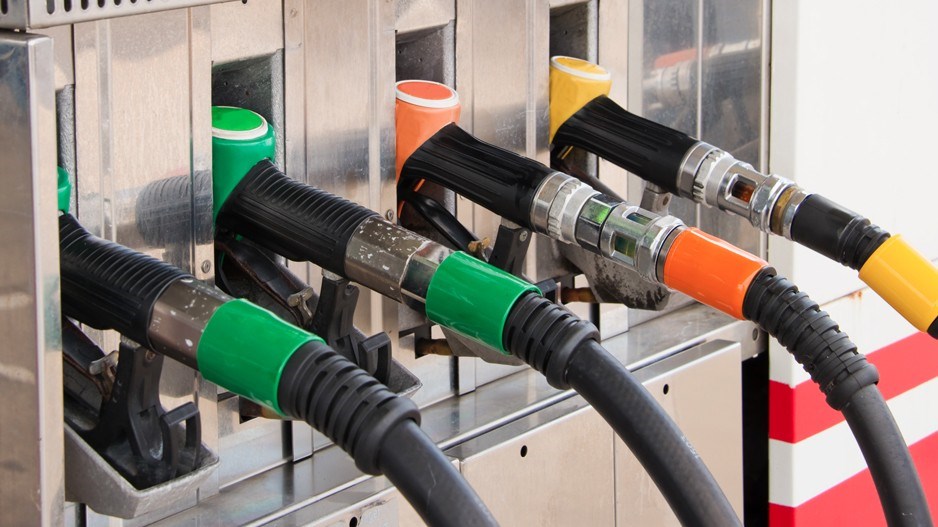B.C.’s carbon tax is set to rise this week by $5 to $45 per tonne of CO2, and a federal tax elsewhere in Canada is set to rise to $40 per tonne from $30.
The April 1 carbon tax hikes come one week after the Supreme Court of Canada upheld the Justin Trudeau government’s federal carbon pricing scheme.
Ontario, Saskatchewan and Alberta had challenged the federal Greenhouse Gas Pollution Pricing Act as federal overreach that infringed on provincial jurisdiction.
But in a 6-3 ruling, the Supreme Court ruled Parliament has the constitutional authority to implement the tax.
Currently, B.C.’s carbon tax is higher than the federal tax, but B.C. will need to increase its annual carbon tax hikes soon to match the federal tax.
B.C.’s tax is scheduled to rise by $5 per tonne each year, though last year the hike was paused because of the pandemic.
The federal tax will rise to $50 per tonne in 2022, which will match B.C.’s price, but then will begin increasing by $15 per tonne, until it reaches $170 by 2030. So B.C. will also need to increase its annual hikes.
The federal government claims the federal tax is revenue neutral, because most of the revenue raised gets rebated to citizens. The rebates offered to residents of provinces like Saskatchewan and Ontario are higher than the provincial rebates that British Columbians get.
Now that the federal tax has been upheld, the federal government may come under pressure from Canadian industries to address leakage issues. Leakage concerns have been raised in B.C. for cement production and other industries. B.C. has seen increased imports of cement from countries that don’t pay carbon taxes.
The federal government has used a complicated output-based pricing system to try to insulate large carbon-emitting industries that pay carbon taxes from this.
But critics say the mechanism grants heavy emitters generous exemptions, which may essentially shift the burden for paying carbon taxes and reducing emissions onto consumers.
An alternative or complementary mechanism might be a border carbon adjustment levy. For example, cement imported from an Asian country that has doesn’t have a carbon tax might have a levy applied to imports to protect Canadian cement producers that pay carbon taxes.
One of the implications of last week’s Supreme Court ruling is that those levies are now possible, should the federal government decide to implement them.
“We can’t do that if they don’t uphold the price,” said Chris Bataille, a Simon Fraser University professor who is an expert in energy economics, climate policy and decarbonization.
Trudeau’s climate change policies have been criticized because fuels like gasoline and diesel will essentially become double-taxed, because the federal government also plans to implement a national clean fuel standard.
It would be applied to gasoline, diesel and home heating oil. B.C. already has a low-carbon fuel standard, which requires gasoline and diesel sold in the province to have a specified percentage of biofuels added to lower emissions intensity.
With a national clean fuel standard layered over top of a carbon tax, Canadians will essentially be paying a double tax on fuels like gasoline, said Dan McTeague, president of Canadians for Affordable Energy, because the requirement to add biofuels to gasoline and diesel would increase fuel costs for consumers.
University of British Columbia political science professor Kathryn Harrison said she didn’t think last week’s ruling had implications for other federal climate change policies, like the federal clean fuel standard.
“This ruling is specific to the Greenhouse Gas Pollution Pricing Act, which is upheld under the ‘national concern’ doctrine of the Peace, Order and Good Government power,” she said.
“Other regulatory measures have been adopted or proposed under CEPA [Canadian Environmental Protection Act], which has a different primary constitutional basis.”
Whereas the federal carbon tax has implications for provincial governments, the clean fuel standard has implications for the private sector – the petroleum industry. Nor does the ruling likely have implications for other federal climate change policies, like methane emission reductions or the phasing out of coal power by 2030, because the provinces are generally on board with those policies. Alberta may be on track to phase out coal power ahead of the 2030 federal deadline.
As for a proposed carbon border adjustment levy, Harrison said it is probably premature, at least as it relates to the U.S., for Canada to even consider such a levy.
Even if the U.S. never implements a national carbon tax, she said other regulations in the U.S. that curb emissions could be considered a kind of implicit price on carbon, equal to or even exceeding Canada’s carbon prices.
“I think it’s premature for Canada to start talking about implementing a tariff on U.S. imports, given how fast things are moving in the U.S.,” Harrison said.
“In any case, as the smaller and more vulnerable partner in the Canada-U.S. trading relationship, Canada should, and I’m sure will be, very cautious about the prospect of starting a trade war with the U.S.”
See related "Carbon tax ruling could help clear jurisdictional and political air”




